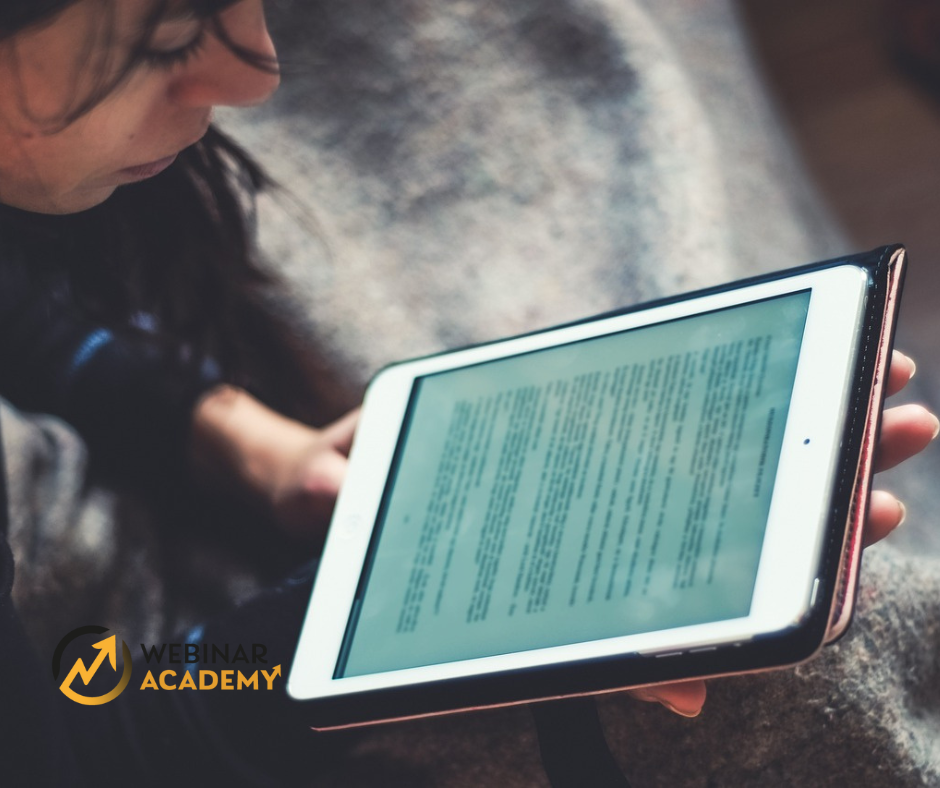The Internet and its opportunities
When it was once thought that the Internet had reached its final stage of development and that it could not get any more advanced - no one could have guessed how wrong we were. The web allows us not only to play games and use social media or go shopping, but also to communicate with people from all over the world or acquire new knowledge. Of course, this requires common sense and the ability to filter out real content from fake content, but the mere fact that there is an abundance of scientific publications in various fields on the internet, which we can open and browse at any time, makes it a powerful tool for gaining valuable knowledge. Over the last three to four years, a multitude of companies have been set up to offer online courses, and educational establishments, universities and colleges, offer the possibility of expanding knowledge in this way.
A lot of postgraduate study institutions offer online-only access to learning. For some this will have more downsides, for others it will have advantages, so it is fantastic that in this day and age we can have this choice and decide the form in which we want to educate ourselves and expand our knowledge. All of this means that in today's world of digitisation and actually universal access to the internet, online resources are becoming a competitor to the traditional form of education. Even when studying in a residential school, it is probably the case that most students search the internet anyway in order to check, clarify something or deepen a topic. The educational institutions themselves are also increasingly using material available on the internet to emphasise something particularly relevant. At the end of the day, online learning can be a very developing activity, and a little more can be taken from the webinar academy platform.

Online learning ... seriously?
Online learning can still be a controversial topic. We live in a situation where some people in this world grew up without the internet, some without, some with, and some with - they have known the internet 'since birth'. So as many people, so many opinions on the subject, but what is certain is that the prudent and skilful use of online resources can boost learning results more than the classic "sitting with your nose in books". On the web, we can find not only scientific articles, but also charts, simulations, maps, models, which, for those thinking spatially, will be more illustrative and instructive than dry formulas. How can the Internet be used for learning? If only through the educational quizzes and developmental games available on it. There are plenty of platforms that offer 'tests' in various fields that can be tailored to people of different ages. This is not only an interesting option to test your knowledge, but also at school age - to warm up before a test and update your current skills.
To a large extent, the training platform offers many benefits. Depending on the type of person we are, learning in this way can produce the desired results much more quickly - here it is a matter of personal consideration as to whether one is more willing to absorb knowledge from the internet or from books, which will still be an individual preference. We can even go on online tours via the web, which will enrich our knowledge without having to move from home. Virtual tours are available in many museums, but also in national parks, and there are also many historical monuments.
Training platform, meaning online learning
Training platforms, which have been gaining strongly in popularity over the last few years, are places on the web where we can improve our skills without leaving home. In other words, it is simply online learning, as demonstrated by Webinar Academy, among others. They are offered by different educational institutions, in different fields - they can be, for example, general learning platforms aimed at teachers, where they talk about how to respond to different student behaviours or how to work more effectively, and they can also be training platforms in dietetics, psychology, computer science, computer graphics - probably in literally any field! They most often operate on a subscription basis - you buy access to different training courses either one at a time or by paying monthly for a given amount of learning material. There are also training platforms that offer 'VIP packages', where you can buy access for, say, a year, for an unlimited number of courses.
This has a lot of advantages, as we can listen to such training on our way to work, or while cleaning, doing other household chores that don't engage our heads heavily, or even while working out at the gym. It's a phenomenal addition to our studies to keep adding to our knowledge, but also a good idea to deepen our passion and maybe even a prelude to retraining. The skills you gain from using training platforms can be used with full success in your school, but also at work - and improving your competences is an argument for a possible raise!

Learning at school or at home?
Many people certainly wonder whether it is better to study at school or at home, and here there is no one answer - it simply depends. It depends on the expectations we have of the school, and often also on our predispositions, temperament, personality - one of us copes better with learning at school, perhaps through a more extroverted personality and a desire to interact with a "live person", on a regular basis. In online training, it is not always possible to get an answer to a question at any given time. Instead, online learning can be fantastic for people who value peace and quiet, have a more introverted nature, and are better able to focus in small groups or alone. Therefore, it's up to the individual to make the final decision - one will choose the options of active interaction with a teacher or trainer and feel more comfortable being able to exchange ideas, while another is definitely more at home, where he or she will focus better and learn a lot more than stationary. Hybrid solutions are therefore good - where learning takes place in two formats at the same time - both stationary and the 'broadcast' is transmitted live for those participants who prefer an online solution.
Learning has changed a lot over the past few years - it is not just about the curriculum and teaching methods, but the very fact of being able to choose the form in which we want to acquire knowledge. As in all matters, not everyone likes change, so remote learning has many opponents, but also many supporters. Properly conducted, it is capable of leading students to fantastic educational results. At the point when such a form is to be carried out "in a huff", it is worth letting go - then it will be both a waste of time and energy. The Webinar Academy's training platform can effectively bring you closer to the subject - so it's worth taking a deeper look.
